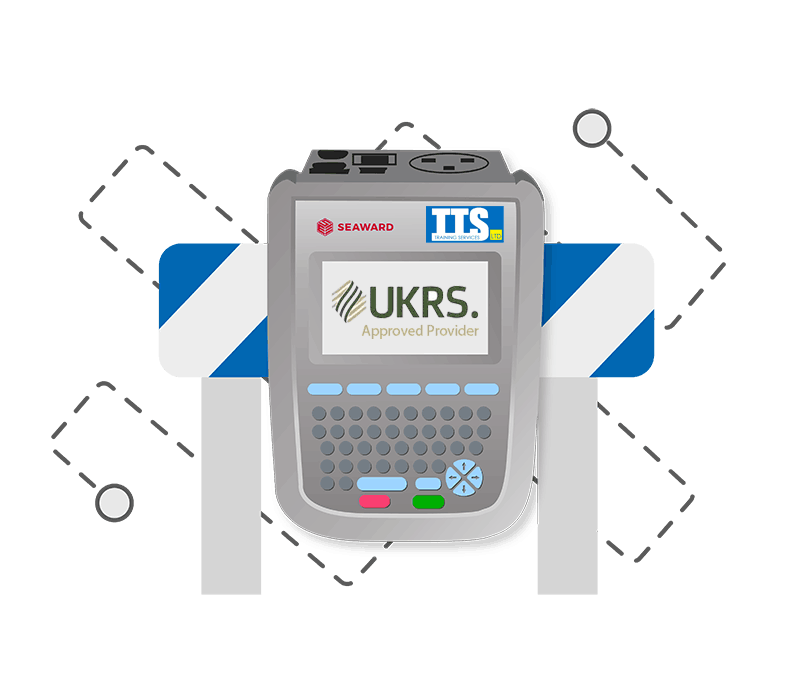In a highly competitive academic environment such as London the need for comprehensive practice tests and mock examinations are essential for students preparing for GREs and GMATs, TOEFLs, and LSATs. Here are 10 ways that these simulations can improve your exam performance:
1. Familiarizes the students with the structure of the exam, its timing and exam format
The exact layout, question types and sections of each test are repeated in mock tests, which helps students to understand the timing and layout. For instance the LSAT's logic games or GMAT’s section on data sufficiency can be difficult if you've never previously practiced with that format. So, repeated exposure to these patterns will make them easy to master.
2. Develops endurance for long testing Sessions
Every exam is different. It can be lengthy and mentally demanding. They can last between two and five hours. Regular practice tests allow students to stay focused, build mental stamina, and perform consistently through long periods of time, thus reducing the amount of fatigue they experience on exam day.
3. Time Management Skills: Improved
To help students learn to be pacing it is crucial to take tests that are timed. Students can be taught how to manage their time by completing the sections with test conditions.
4. Identify Strengths and weaknesses
Mock exams provide valuable insights into specific areas where students require improvement. Students can determine areas in need of more attention by looking at their performances in each section.
5. It helps to reduce test anxiety and boost confidence
Repeated exposure to the exam setting assists in reducing the stress of the test day experience. Knowing the procedure and what to expect will help ease anxiety. Students will feel more confident.
6. Helps test taking strategies that are effective.
Students can try different methods, including skipping questions that are difficult with educated guessing, or using eliminating strategies. They can refine their strategies as they progress to discover which ones work best for specific areas, such as GMAT critical thinking or TOEFL hearing.
7. Allows for detailed performance tracking
The comprehensive mock tests are often accompanied by analytics and reports that reveal the progress of students in time. Students can track their progress in areas like speed, accuracy and overall score, which can motivate them as they are able to see improvements.
8. Simulation of real-world test conditions
It is essential to get familiar with the test environment by taking mock exams. This helps students get comfortable with the quiet and focused atmosphere of a test centre and prepares them to concentrate on the examination day.
9. Students are more likely to retain and remember what they've learned.
Repetition of the key concepts in practice tests reinforces learning and improves retention. Students can enhance their memory and understanding by repeatedly tackling concepts like GMAT's maths or GRE's vocabulary.
10. Develops skills to deal with difficult questions
The practice tests expose students to challenging questions and curveballs that frequently appear in standard tests. When they face these challenges students will develop grit. They'll learn to face difficult questions confidently and with determination.
Utilizing comprehensive practice tests as part of a balanced preparation plan can assist students to improve their skills as well as build confidence for the actual exam. Check out the pro London Exam Services for site info including difference between gre gmat, take gre or gmat, gmat and gre, gmat sat, gre law, lsat gmat, how to get gmat, what is gmat and gre, is gre better or gmat, what is gre examination and more.

How Can You Improve Your Exam Performance By Focusing On Test-Taking Techniques?
Students who are in London and elsewhere who wish to get top scores in exams like GRE, GMAT and LSAT must focus on their techniques for taking tests. Following are 10 ways in how mastering the test-taking strategies will make a significant difference.
1. Improves Time Management, Pacing and Efficiency
Effective strategies train students on how to take their time within each section, making sure that they complete all questions with no feeling pressured. For example when it comes to the GRE and GMAT, students learn to use their time effectively in both the verbal and quantitative sections While the TOEFL requires efficient control of speaking and listening segments.
2. Increases Accuracy via the process of elimination
Eliminating wrong answers is a great way to increase your chances of getting the right answer for a variety of tests. Elimination strategies can aid students narrow down the choices quickly in the case of GMAT or LSAT reading comprehension and the equivalence of sentences.
3. The art of guessing or skipping
Being aware of when to skip an uneasy question and come back to it in the future can help stop students from becoming stuck and wasting time. This is especially useful when it comes to timed sections of the LSAT or toEFL where spending too long on a single question may leave other questions unanswered. Using edgy guessing methods can also reduce the chance of not answering questions with blanks.
4. It helps manage test anxiety
Reducing anxiety can be accomplished by applying techniques such as slow breathing, keeping your mind to the questions that are most manageable and positive visualisation. Utilizing routine strategies can reduce anxiety and provides students with a feeling of control.
5. Use Scratch Paper and Notice Boards to be Effective
In some exams, including GMAT/GRE, students have few scratch papers to take notes quickly. A strategy-focused prep helps students organize their notes by jotting key concepts, equations, as well as clues to be able to answer difficult questions quickly.
6. Improves Analytical Reading Techniques
For the verbal sections of the GRE and GMAT Effective reading strategies are crucial. This includes the use of keywords, summarizing sentences, and deciphering key concepts. For TOEFL, these strategies are also beneficial for comprehension of academic texts and lectures, resulting in higher accuracy in comprehension-based questions.
7. Enhances Methods for Answer Checking and Reviewing
A well-practiced revision strategy can alter the course of play, particularly on tests with many sections. Students are taught to review quickly answers if time permits, checking for any mistakes made by mistake. This is helpful on tests like the GMAT, where accuracy in quantitative sections is essential.
8. Enhancing Logical Thinking and Critical Thinking
Tests that are standardized are designed to assess reasoning abilities, not just content knowledge. A focus on strategy in training enhances the ability to think logically and helps students solve complex problems with a systematic approach. This is particularly valuable for the LSAT exam, that is heavily based on logic reasoning and analysis of argument.
9. Customizes the Approach for Different Question Types
Every exam has distinct questions that require specific approaches. The TOEFL's integrated reasoning and GMAT's listening comprehension are different. Students should take each type of test with a a confident plan and strategies specific to that type.
10. Test-specific insights can assist you in increasing the chances of scoring
Techniques for taking tests are derived from of the experience and insights of teachers who have taken several tests. GMAT data sufficiency question rewards students who grasp the logic of the question, whereas TOEFL's speech strategies focus on clarity, coherence and fluency. Understanding these concepts can boost your score substantially.
Students who wish to improve on their GRE, GMAT or TOEFL scores must master these techniques. In London the city of London, where scores that are high are sought-after, these strategies give you an edge. They assist students in preparing for the test and feel confident on test day. See the pro gre cheating for blog recommendations including gre or gmat scores, lsat or gmat, lsat to gre, gre london, what is a gre or gmat, what is a gmat or gre, toefl gmat, which exam is easier gmat or gre, is gregmat good for gre, what is a gre or gmat and more.

The 10 Best Methods To Boost Exam Performance With Collaboration, Peer Support And More
Students in London preparing for GRE, GMAT and LSAT exams will benefit from peer support. Here are ten examples of how these elements improve performance:
1. Inspire motivation and encourage accountability
In a group setting, studying together can create the feeling of accountability because peers motivate each other to stay in line with their academic schedules. This motivation can be particularly helpful in a highly competitive setting such as London, where consistent effort is the key to getting top scores.
2. Facilitates Knowledge Sharing
Students can exchange ideas, strategies, and tips through collaborative education. For instance an individual who has completed a particular portion of the GMAT can help others learn efficient techniques for problem solving, enhancing the overall experience for the group.
3. Promotes Diverse Points of View
Group study sessions provide the opportunity to experience different methods of problem solving and viewpoints. This will help in gaining knowledge of complicated subjects like the GRE and LSAT.
4. Enhances the understanding of difficult concepts
Students can gain from the explanations offered by their peers on challenging topics. If a student is struggling with analytical writing on the GRE might benefit from sharing information with a fellow student.
5. Offers emotional help
It can be stressful preparing for tests that are standard. Sharing your experience with other students can help reduce stress. Sharing your worries and successes can help create a positive environment that can make the preparation more enjoyable.
6. Encourages Active Learning
Collaboration promotes active engagement with the material. Students who debate and discuss questions, such as those in the LSAT's logical reasoning section, tend to keep information compared to passive methods such as reading solo.
7. Simulation of the Real Exam Conditions
It is possible to incorporate timed practice exams in group sessions to simulate the exam environment. This helps students learn to manage their time and to become accustomed to responding to questions within a time frame.
8. Uses group problem-solving techniques
Students who collaborate with regard to case studies and practicing questions improve their ability to collectively solve problems. This is especially useful for the quantitative sections of GMAT and GRE.
9. Offers feedback and a variety of learning Styles
It is very helpful to have peers provide constructive feedback on the practice essay or methods for problem-solving particularly for the TOEFL Speaking and Writing sections. Furthermore, collaborative learning accommodates various different learning styles, allowing students to learn in ways that resonate with them the most.
10. Develops an Network of Resources
Students who join collaborative learning groups and forming study group can provide the students with a wealth of resources. They can exchange study materials, online resources, and even interact with tutors or instructors and gain access to a variety of preparation tools.
Through peer assistance, collaboration and other methods, London students can prepare for the GRE/GMAT, TOEFL/LSAT, and GRE/GMAT. This method helps students improve their understanding and retention of the subject matter, while creating a positive learning environment which can enhance exam performance. Read the expert toefl cheating for more guide including difference between gre gmat, gmat or sat, which is easier lsat or gre, gre vs gmat exam, gre exam duration, gre exam is for what, cheating on gre, should i take the gre or lsat, gmat lsat, sat vs gre vs gmat and more.